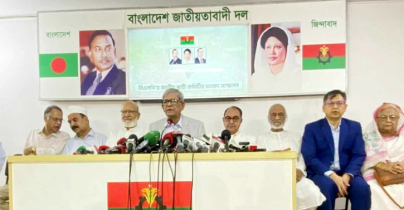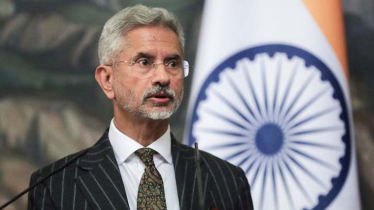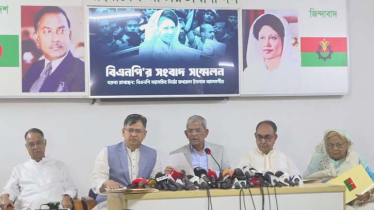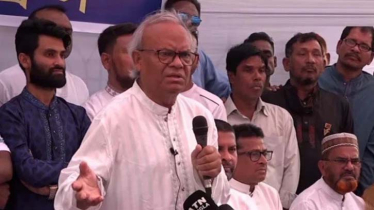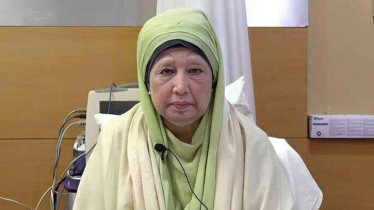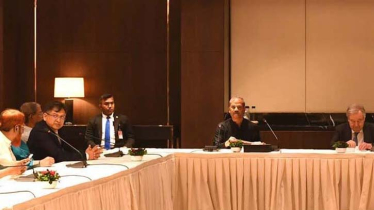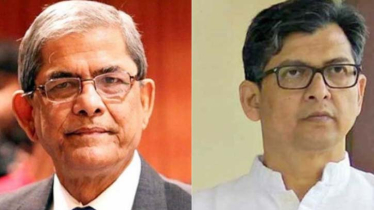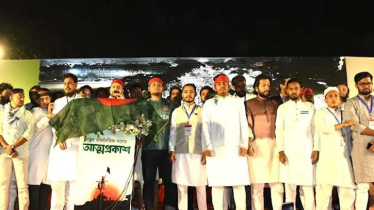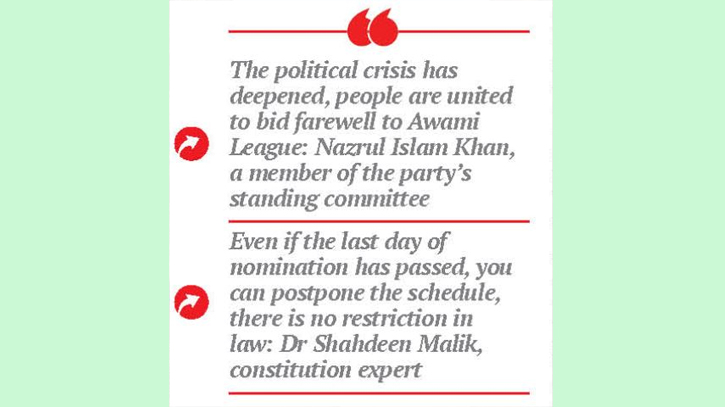
Photo: Messenger
The electoral journey has commenced without any rescheduling in sight, solidifying BNP's definitive choice to abstain from participating in the polls.
A resolute stance is also evident from at least 14 other parties, including Jamaat, publicly supporting BNP's decision to avoid elections under the Awami League's leadership. Within this opposition coalition, the prospect of delaying the anticipated electoral outcome remains palpable.
Reliable sources indicate that, following conclusion of the 48-hour blockade beginning on Sunday, the opposition plans to unveil a new program in the constituency. A non-cooperation movement may be declared a week before the elections. Preceding this, a series of programs, including hartal and blockade initiatives in the district starting next Tuesday, is anticipated. The primary objective is to position the ruling party and its supporters in the election fervor, contrasting with the BNP and Jamaat's opposition to the electoral process.
This strategic move heightens the inherent risk of clashes between leaders and activists of the ruling party and the opposition. The political landscape is becoming increasingly tense as the opposition prepares to assert its stance against participating in the upcoming elections.
Diplomatically, accruing bonus points becomes plausible for the opposition if the district-based conflict persists. Furthermore, should hindrances or arrests by law enforcement persist during this period, it could potentially turn sentiment against the Awami League. In such a scenario, considering the prevailing circumstances, the opposition might strategise to besiege local government institutions and declare a sit-in program.
Simultaneously, a comprehensive plan for a movement centered around Dhaka has been meticulously crafted. Party seniors have orchestrated specific programs aligned with diplomatic approaches leading up to the elections. These initiatives encompass joint meetings and discussions aimed at ensuring labour rights, gatherings focused on women's issues, events targeting youth engagement, and various programs involving legal professionals. Additionally, plans are in place to organise substantial sit-in demonstrations, particularly around the High Court and Press Club, at strategic times. This multipronged strategy aims to navigate the political landscape effectively and make a diplomatic impact in the lead-up to the elections.
At the grassroots level, party leaders and activists express a sense of optimism within the BNP, envisioning victory ahead of the twelfth election. Last Thursday, a significant number—approximately two to three hundred leaders—reported facing pressure from the ruling party and special interest groups to partake in the district-level elections. They were assured that all expenses related to the polling process would be covered, and even in the absence of victory, special rewards awaited them. Acting Chairman Tarique Rahman personally engaged with leaders, reaching out directly and conducting a series of meetings with alliance members who seemed inclined to consider the proposition following these subtle hints.
Nazrul Islam Khan, a member of the party's standing committee, convened a series of meetings in an auditorium on Topkhana Road from morning to evening on the final day of Thursday's election participation. The party asserts that, apart from their vice-chairman, Barrister Shahjahan Omar, no one else has succumbed to government pressure. Notably, individuals like Shamser Mobin and Taimur Alam Khondkar, who defected from BNP earlier to join Trinamool, are no longer considered part of the BNP. Shamser Mobin was expelled from the team in 2018, and Taimur Alam faced a similar fate in 2020. The few individuals who may have shifted allegiance to BNM are not regarded as integral to the core of the party. Overall, the government's attempt to sow discord within the BNP or deliver an unexpected blow seems to have fallen short of its intended impact.
Many within the party, including the BNP alliance, harbor doubts about the current government's ability to conduct elections or sustain power through a process similar to that of 2014 or 2018. There are apprehensions of potential challenges, such as restrictions on sectors like apparel, akin to actions taken by RAB, or visa bans. According to sources, a significant segment of the Election Commission, members of the Awami League, and law enforcement agencies are actively involved in exerting diplomatic pressure on key figures. So far, diplomatic missions have been signaling the opposition to engage in peaceful activities, advocating for non-disruptive programs to voice their concerns.
In response, the BNP has initiated diplomatic efforts by submitting two letters to foreign embassies, accompanied by special documents and media-published information. These submissions allege the ruling party's involvement in isolated arson attacks. Sources within the party's diplomatic affairs suggest that if the opposition receives indications to defend itself, the BNP may adopt a more confrontational approach with conflict-like programs in the future.
Rafiqul Islam, the Labor Secretary of the Gano Forum and the President of the Integrated Garment Workers Federation, shared with The Daily Messenger when queried, "Back in 2018, we didn't anticipate that the government would organise such an election. This time around, due to our lack of trust in the government, we abstained from participating in the elections. Our approach has been a peaceful movement aimed at bringing about a change in the government. I personally witnessed a 16-day blockade and participated in a four-day hartal. It has come to our attention that both the Awami League and unidentified individuals were involved in setting a car on fire. Despite the release of pictures and videos, the government has yet to identify those responsible. We hold the belief that the current government will struggle to conduct elections similar to those in 2014 and 2018. There are already signs of wear and tear, and we harbor concerns about the future of the country."
BNP Senior Joint Secretary General Ruhul Kabir stated, "We are in the final stages of our movement to bring down the government. The entire world has denounced this government's notion of a fair election. The Awami League is blaming everyone, asserting that the election train left due to the announcement of the schedule without political consensus. A storm is imminent, and this government will be swept away. No one from the Awami League will be able to escape its impact.
BNP Standing Committee member Nazrul Islam Khan commented that the government is attempting to conduct elections without the participation of BNP. In pursuit of this goal, they hastily disregarded all established rules while formulating the schedule. Additionally, they rejected the dialogue offer mentioned in the letter from US Assistant Secretary of State Donald Lu. Consequently, the political crisis has escalated. Khan emphasised that the people of the country are now united in their determination to bid farewell to the Awami League.
Constitution expert and Supreme Court lawyer Shahdeen Malik said that the people of the country and diplomats desire participatory and competitive elections. With thousands of BNP leaders currently in jail and lacking an opportunity for dialogue or reconciliation, questions arise as to why they did not participate in the elections. Malik expected that the Election Commission would provide BNP with a chance to postpone the schedule, considering past instances where schedules were delayed to avert potential disasters. However, that opportunity was denied. Malik suggests that, legally, there is no barrier to postponing the schedule even after the last day of submitting nominations, provided the commission considers the overall issues facing the country. The lawyer is concerned that the election is likely to be one-sided.
Professor Shantanu Majumder from the Political Science Department at Dhaka University noted that only around 5 or 6 political parties in Bangladesh enjoy significant popularity. These include Awami League, BNP, Jatiya Party, Jamaat-e-Islami, and the Islamic Movement. Other parties, forming the right-left coalition, hold their own positions. Majumder emphasised that the acceptability of these parties is primarily associated with election participation. If a considerable portion of the voters refrains from participating in the elections, questions regarding the acceptability of the outcomes may persist. He observed that a substantial number of people are still opting not to participate in the electoral process.
Messenger/Sun Yath

